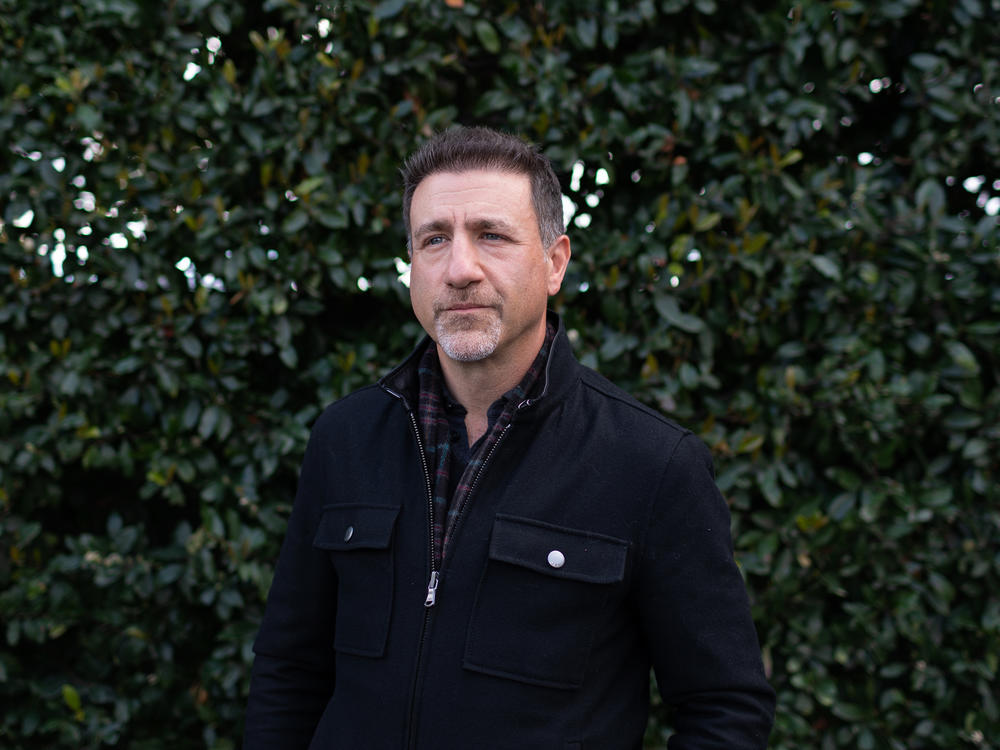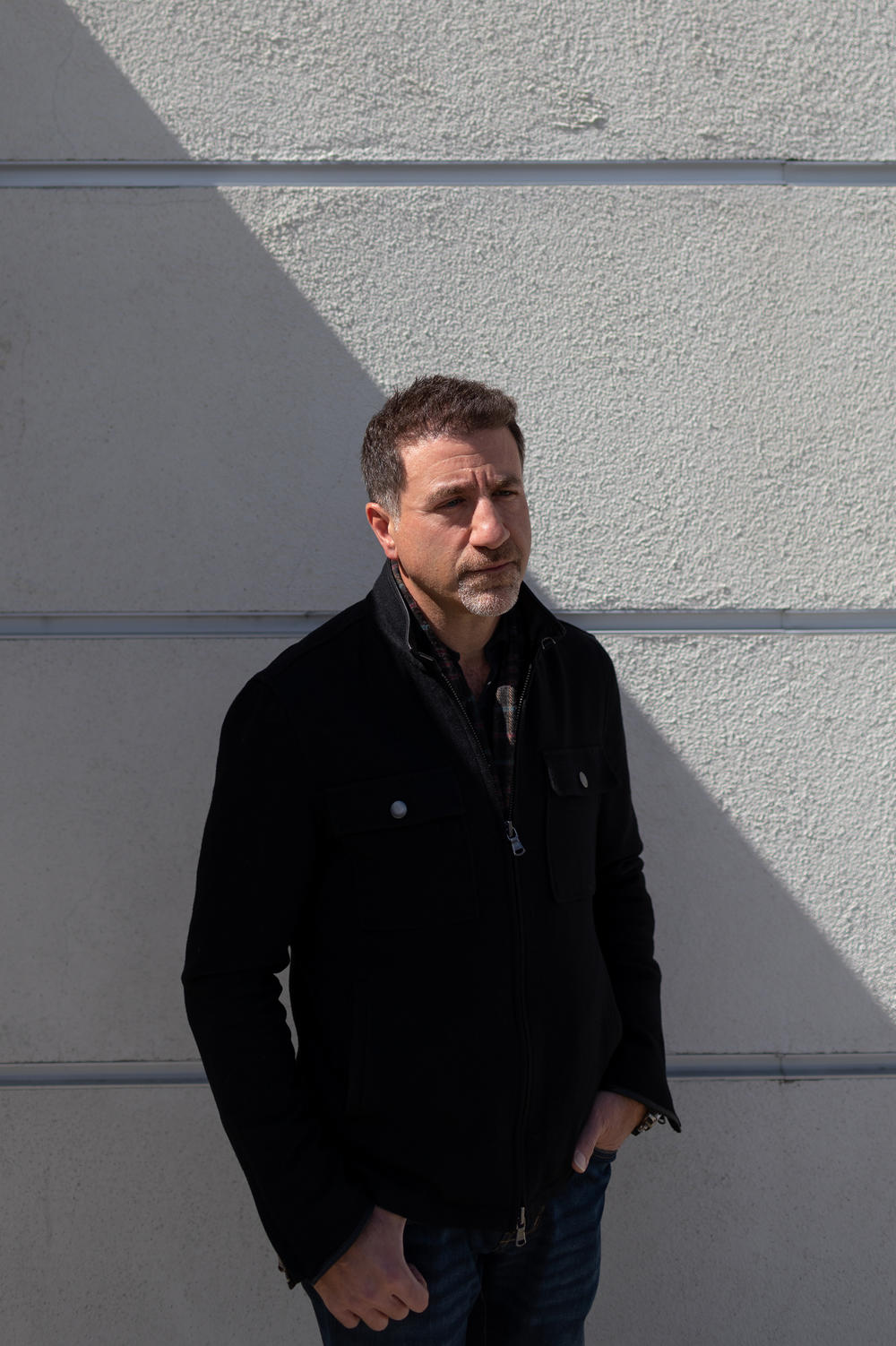Section Branding
Header Content
Why SkySilk Came Out of Nowhere To Save Parler After Capitol Riot
Primary Content
On Jan. 10, just days after pro-Trump rioters blitzed the U.S. Capitol, Amazon Web Services pulled the plug on the conservative social media site Parler.
Parler grew desperate. It had relied on Amazon's Web-hosting services to reach its burgeoning audience of more than 12 million. After Amazon cut it off, it was rejected by six other Web hosts. It seemed doomed to disappear from the Web.
Until SkySilk showed up.
The obscure Los Angeles-based, Web-hosting company extended a hand and brought Parler back online last month.
In his first interview since that moment, SkySilk CEO Kevin Matossian said he never intended to jump into the middle of the national debate over online speech. Instead, he said, he made a deal with Parler to spite tech giants such as Amazon, which abuse their might.
"Is the power that is being wielded by Big Tech more dangerous than the hate and vitriol of certain places on the Internet?" he asked. "We took the position that big technology's overreach, this unchecked power, is equally frightening."
Amazon justified dumping Parler in January by saying the social media site represented a "very real risk to public safety" after finding it was allowing content that "encourages or incites violence against others" in the wake of the Capitol siege.
Social media platforms have received most of the scrutiny in discussions about the harms of unrestrained online speech. But companies that provide the hidden infrastructure to support the platforms wield immense power.
Tech firms like SkySilk that offer Web hosting and others that register websites, such as Seattle-based Epik, are increasingly the gatekeepers. Often those companies alone can determine whether websites — including those that serve millions — exist or not.
Mysterious SkySilk confounds even former employees
SkySilk, which offers Web hosting, cloud storage and a variety of other online services, has stayed under the radar since Alex Gorban founded it in 2015.
In a 2017 California state filing, Diana Gorban, Alex's wife, listed herself as CEO, secretary and chief financial officer of SkySilk.
Alex Gorban also runs a firm called IT Creations, which resells used and bulk computer parts. Both companies are based in the suburban Los Angeles neighborhood of Chatsworth.
The couple declined to comment for this story.
But interviews with several former employees of SkySilk portrayed the company as a haphazardly managed shop where morale is low and chaos runs deep.
An ex-employee, who requested anonymity for fear of retaliation, described a "sketchy" work environment where, even before the pandemic, the office "was 95% empty most of the time." Yet every room had surveillance cameras installed, the person said.
"And they hired mostly friends and family, so everyone was loyal to management," according to the former staffer.
The person added: "I had the impression it was a side business for something else, but nobody ever figured it out."
The ex-employee said that SkySilk aimed to nip at the heels of Amazon Web Services.
"We were told to try to take 0.01 of AWS' business," the ex-staffer said. "And if we did, we'd be thriving."
The former SkySilk employee said, "We would take anyone on as a client, like people who were looking for ways to hide their search history," referring to individuals or companies seeking to bury unflattering results on search engines such as Google.
A second former SkySilk employee supported this characterization, adding that people came and went and that the company felt like an unfocused and confusing extension of IT Creations.
"It was a revolving door. There was a lot of turnover," this ex-employee said. "At times it seemed like we weren't even sure why the company existed at all."
In response, Matossian, SkySilk's chief executive, said he is not aware of any widespread worker unhappiness or complaints that the organization is in disarray. He said there is nothing unusual about the founder of a startup hiring friends and family. He said SkySilk has always had many employees working remotely, which explains the mostly vacant office. And he said that heavy use of security cameras in public parts of the office is necessary to "maintain a certain level of security."
SkySilk, which works mostly with software developers, has nothing to hide, Matossian said.
"It's not a side business for anything. It's not a shell company for anything," he said. "I can say that emphatically."
In a follow-up exchange, Matossian said SkySilk also works with medical software, automotive software, graphics rendering and entertainment companies, but he would not get more specific. He said SkySilk has less than 50 employees around the globe.
Matossian: Big Tech can make you "disappear"
Before joining SkySilk, Matossian, 47, said he planned to retire early and focus on independent film projects.
The son of a pastor and a bookkeeper, Matossian dabbled in real estate in Southern California before launching various businesses in the world of film and television.
In 2019, he sold Film Solutions, a company he founded 13 years earlier, to a group of investors for an undisclosed sum. The firm handles on-set publicity photos for TV and movie productions.
Over the years, he turned to IT Creations to buy computer hardware, and, he said, he became close to the Gorbans.
The bond between Matossian and Diana Gorban was further cemented by something else they share: their Armenian roots.
"It's fun to find people of similar backgrounds in a space you want to be in," Matossian said.
Matossian said he became an informal consultant to the Gorbans' businesses before Diana Gorban asked him to lead SkySilk late last year.
He joined the company just before it decided to help revive Parler. Matossian said he believes Parler has the right to exist online despite being a magnet for far-right groups, white nationalists and misinformation.
"It scares us and concerns us that big technology can turn you on and turn you off," he said. "We used to joke about this, right? That the mafia can make you disappear. Well now, big technology can make you digitally disappear."
By Matossian's own admission, taking on Parler was also a business decision, a way of sending a signal to other sites considered too risky or problematic by other Web hosts.
"It would be foolish for me to tell you that the benefit of attention would be negative for us," he said. "We're happy if people want to use us as a service, but our intentions are as noble as we can make them."
By "noble," Matossian said he meant "protecting the spirit of the First Amendment online," echoing other defenders of so-called alternative social media sites, who often wave the banner of free speech when confronted with criticism about what kind of content thrives on the sites.
''SkySilk stood with us''
In severing its contract with Parler, Amazon cited 98 examples of posts that encouraged violence in the wake of the Jan. 6 insurrection on the Capitol.
Parler acknowledged it had a backlog of 26,000 posts that "potentially encouraged violence," blaming a power outage that resulted from the social media site being flooded with new interest after Twitter banned former President Donald Trump.
In a statement to NPR, Amy Peikoff, Parler's chief policy officer, said the site quickly became a pariah in technology circles when it went dark.
"Many of our vendors allowed themselves to be misled by the concerted disinformation campaign against Parler, and were intimidated or scared to do business with us, for fear of being blacklisted or doxxed," Peikoff said. "But SkySilk stood with us on principle."
Parler is still not operating at full capacity. Only people who had accounts before Jan. 10 can use it. But as Parler begins to grow again and lets new users set up accounts, attention will turn to how it enforces its new content rules. Those guidelines pale in comparison with mainstream social media platforms such as Twitter and Facebook, which have increasingly clamped down on content that traffics in hate speech and disinformation.
In a Nov. 19 email exchange made public in court documents, Peikoff said a hate-filled post that used the N-word to describe former first lady Michelle Obama would not violate Parler's terms of service.
"The best way to resist hate is with more speech," Peikoff wrote.
Following Amazon's decision, Parler's former chief executive said he tried to set a stricter policy that would ban material from domestic terrorists and the pro-Trump conspiracy theory QAnon. John Matze contends his stance ended up costing him his job. Republican megadonor Rebekah Mercer, a co-founder and financier of Parler, stripped the former executive of his entire stake in the company in pushing him out the door, a source close to the matter told NPR earlier this month.
Parler's updated rules expressly ban only posts that break the law.
"Parler will not knowingly allow itself to be used as a tool for crime, civil torts, or other unlawful acts," its new policy says.
Otherwise, Parler said it will do only the "absolute minimum" when it comes to removing users or the content they post.
Parler's community guidelines state that "not safe for work" posts and "trolling content" are allowed, but users will have to click through a filter to see those.
Matossian shakes off concerns about extremism on Parler, even though he said he has never used it himself. He said he does not have an account.
"Unfortunately, with these public squares, these forums where people can speak, you're going to get riffraff. It comes with the territory," he said. "We don't want, in any way, to promote that, but we also don't want to stymie the more normalized voice, the centrist, if you will."
Even if he found posts on Parler repugnant, it would not stop him from doing business with the site, he said.
"My levels of what I would tolerate are probably substantially lower than most people. I grew up in a religious home, and there are things that are said on the Internet that I wouldn't let my children near," he said. "But where do you draw the line of content moderation? I don't know."
Copyright 2021 NPR. To see more, visit https://www.npr.org.
Bottom Content


